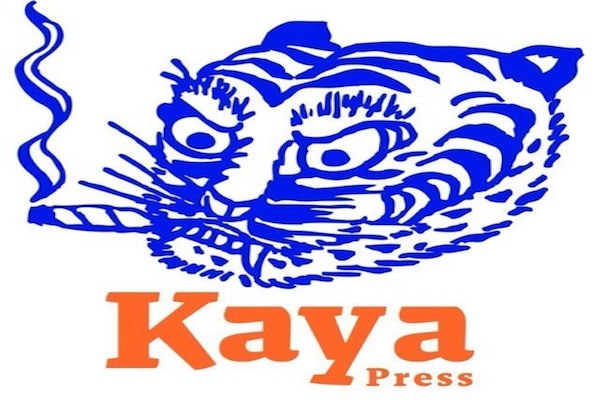Książkowe Klimaty, a publishing house based in the Polish city of Wrocław, has been gradually carving out its distinct and variegated literary footprint since its founding in 2013. In accordance to their mission statement, which states a passion for presenting what is “close and unknown at the same time”, Książkowe Klimaty has continually serviced Polish readers with a rich variety of contemporary European texts, publishing translations from the Czech, Romanian, Turkish, Hungarian, and more. In the following interview, Editor-at-Large for Slovakia, Julia Sherwood, speaks with Książkowe Klimaty’s founder, Tomasz Zaród, on the house’s incidental founding, the award-winning titles available, and the house’s southward expansion.
Julia Sherwood (JS): Poland has no shortage of publishing houses. Many of them also publish translated literature but, as far as I know, yours is the only one that focuses solely, or almost solely, on translations. How and when did it all start?
Tomasz Zaród (TZ): You are right, most of the books published by Książkowe Klimaty are translations, although we have also published some by Polish writers. It all started by chance. A friend of mine with a small publishing house had acquired the rights to a few works, including a novel by the Slovak writer Pavol Rankov, Stalo sa prvého septembra (alebo inokedy), which we translated as Zdarzyło się pierwszego września (albo kiedy indziej, and which can also be found in English translation as It Happened on the First of September (or some other time). I had an online bookstore with well-developed logistics, so we decided to join forces. This was in 2013, and when my friend left after a year, I was left with a publishing house. I had no previous experience in this field but had learned a great deal during that first year. And I was very lucky to have a great team. There were three of us at the start: one in charge of editorial matters (finding translators, editors, copyeditors, etc.), another dealing with promotion, while I tried to tie everything together in Excel. None of us were very experienced, but maybe that is why we dared to do things people with more experience might not have done! Right now, the permanent staff consists of two people responsible for commissioning, promotion, and sales, while I handle the business side of things. All the other work (editing, copyediting, typesetting, and graphic design) is done by freelancers. Looking back on the eight years since we began, I believe that the gamble has paid off: we have published more than ninety books translated from well over a dozen languages.
JS: The literal translation of the name of your publishing house—Książkowe klimaty—is “Book or literary atmospheres”, which doesn’t sound so good in English, but your mission becomes clear from the explanation on your website, which says that every series you publish aims to convey the unique atmosphere of a country or a region. What are the criteria you use to select the countries and books that you publish?
TZ: Most of the books we have published come from Central and Southern Europe, in the widest sense. These are countries not that far from Poland—places where we spend our holidays or that we visit at weekends, but at the same time, we know nothing about the great literature written there. We started with Slovak and Czech, then moved on to Greek and then Romanian, Bulgarian, Hungarian, and then further south. We try to select books that are critically acclaimed and have won some awards. Ten of the books we have published have received the European Union Prize for Literature, many are recipients of prestigious local awards, such as the Magnesia Litera in the Czech Republic and Anasoft Litera in Slovakia. Another feature of the books we publish is that they break stereotypes and show the relations between communities. For example, It Happened on the First of September features the multi-ethnic mix in southern Slovakia, while Księga szeptów (Cartea soaptelor / The Book of Whispers) by Varujan Vosganian deals with the history of Armenians in Romania. Imaret. W cieniu zegara (Imaret: Three Gods, One City) by Iannis Kalpouzos deals with Greek-Turkish relations, while Bulgarian-Turkish relations are the subject of Requiem dla nikogo (Requiem for Nobody) by Zlatko Enev, translated by Hanna Karpinska. We also rely on suggestions from our translators. READ MORE…



